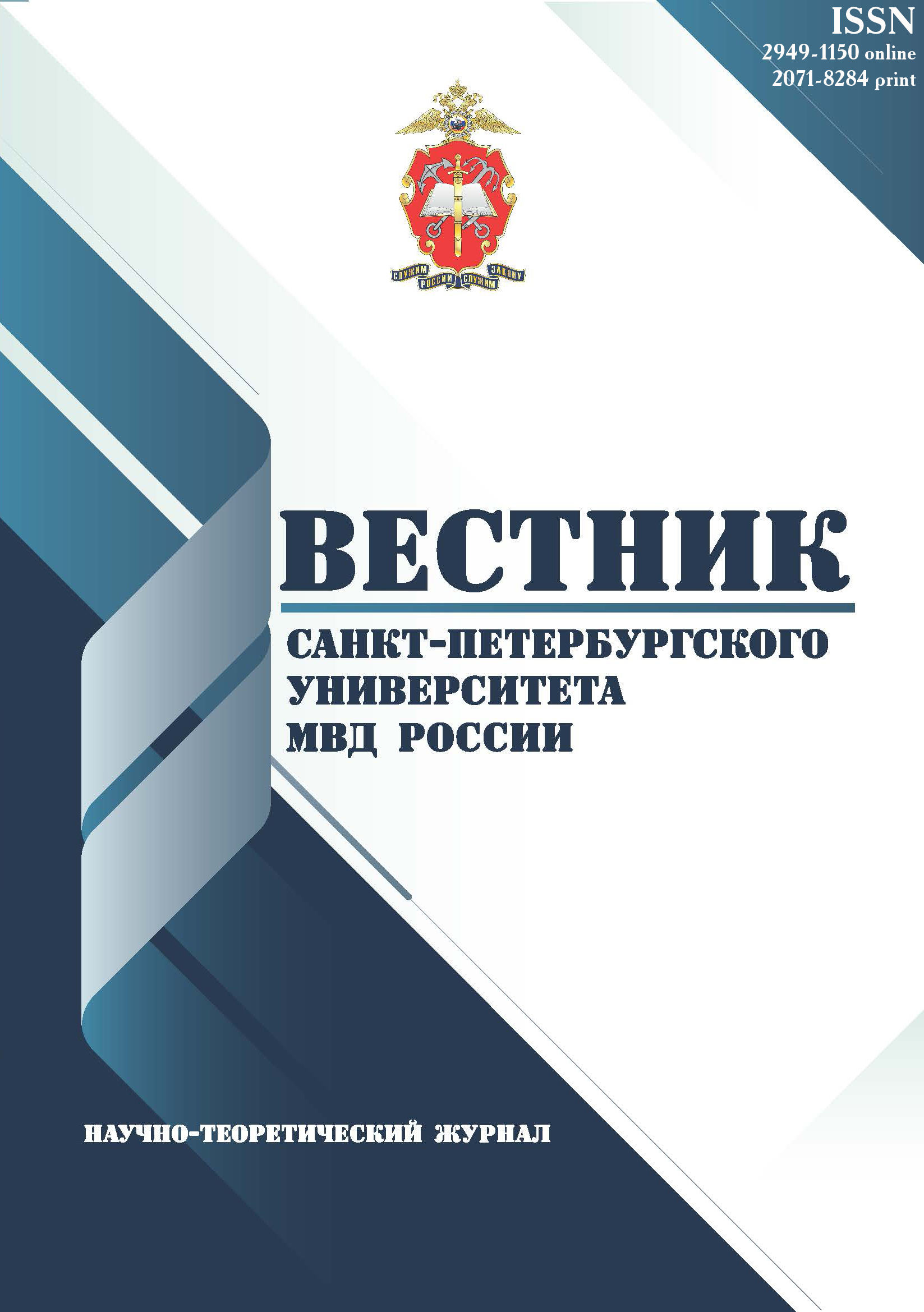employee from 01.01.2001 until now
Sochi, Krasnodar, Russian Federation
Russian Federation
Krasnodar, Russian Federation
UDC 159.9
Introduction. The study describes the results of the research and psychologicallegal analysis of various forms of teacher aggression towards school students. The significance of the research arises from the increasing frequency of conflicts among the parties of educational activity. Herewith, psychological theories of aggression have different explanations of these forms of behaviour, except in the context of educational relations and without a systemic legal analysis. Methods. The research employed theoretical analysis of aggression concepts; classification of teacher aggression types through psychological-legal lenses. The empirical survey included a questionnaire with subsequent analysis (X² criterion) of active /passive aggression frequency. The study sample comprised 100 participants, with 35 male and 65 female; 62 % (n=62) being schoolchildren, 28 % (n=28) adults, 10 % (n=10) students. Results. The study revealed that 82% of the respondents experienced various forms of teacher aggression. In terms of aggression, signs of active aggression dominate, although passive aggression is more common in general. General signs of teacher aggression include showing resentment and irritation, negativism, intolerance and contempt. Schoolchildren and students significantly more often than adults mention such teachers’ behaviour as ignoring, refusal to talk and support, raised tone, slamming doors, throwing objects, pulling the arm. According to students’ opinion, specific expressions of aggression in teachers’ behaviour at school are biased attitude to students, teachers’ hostile tone and threatening content of statements. The study revealed that the most frequent expressions of teacher aggression towards students can be psychologically associated with teachers’ previous experience of stress, frustration, and acceptance of aggression as a habitual and/or legitimate form of response. At the same time, in legal terms the large number of cases of teacher aggression most often does not correspond to an offence, although they demonstrate teachers’ negative attitudes towards students.
difficult interaction, teacher aggression, legal assessment, moral harm, physical harm, compensation for harm, judicial protection of rights
1. Dolidovich O. M., Mashanov A. A., Goncharevich N. A., Sharashkina A. A. Pedagogicheskaya agressiya: sovremennye podhody k izucheniyu i profilaktike // Nauchnyy dialog. 2017. № 10. S. 311–323; https://doi.org/10.24224/2227-1295-2017-10-311-323.
2. Sirotkin S. F. Ne yavlyaetsya li agressiya reakciey na pervichnuyu nedostatochnost' sebya? / Almamater: yubileynyy sbornik nauchnyh statey po pedagogike i psihologii/ sost. S. L. Kopotev, S. F. Sirotkin, V. S. Cherepanov. Izhevsk : Izdatel'stvo Udmurtskogo gosudarstvennogo universiteta, 1995. S. 176–189.
3. Rean A. A., Egorova A. V. Proyavlenie podrostkovoy agressii v otnoshenii uchitelya: rasprostranennost', faktory, posledstviya, profilaktika // Nacional'nyy psihologicheskiy zhurnal. 2021. № 2 (42). S. 98–108; https://doi.org/10.11621/npj.2021.0209.
4. Psihologiya deviantnosti. Deti. Obschestvo. Zakon : monografiya / Adamchuk D. V. [i dr.] ; pod red. A. A. Reana. Moskva : Yuniti-Dana, 2016. 479 s.
5. Tarasova L. E. Agressiya pedagoga kak faktor psihologicheskogo riska v obrazovatel'noy srede // Izvestiya Saratovskogo universiteta. Novaya seriya. Seriya: Akmeologiya obrazovaniya. Psihologiya razvitiya. 2011. № 2. S. 41–47.
6. Berkovic L. Agressiya: prichiny, posledstviya, kontrol' : Sekrety prichin nasiliya, motivov ubiystv, gneva, vrazhdebnosti, nenavisti, razrusheniya, predraspolozhennosti lichnosti k nasiliyu : [per. s angl.]. Moskva : Praym-EVROZNAK, 2005. 512 s.
7. Enikolopov S. N., Kuznecova Yu. M., Chudova N. V. Agressiya v obydennoy zhizni. Moskva : Politicheskaya enciklopediya, 2014. 494 s.
8. Enikolopov S. N. Aktual'nye problemy issledovaniya agressivnogo povedeniya // Prikladnaya yuridicheskaya psihologiya. 2010. № 2. S. 37–47.
9. Kobyakova G. N. Rechevaya agressiya uchitelya v sovremennoy shkole // Vestnik Taganrogskogo instituta imeni A. P. Chehova. 2012. № 2. S. 24–28.
10. Sirotkin S. F. Zametki po metapsihologii agressivnosti. Izhevsk : Izdatel'skiy dom «Ergo», 2014. 292 s.
11. Lorenc K. Z. Agressiya: (Tak nazyvaemoe «zlo») / per. s nem. G. F. Shveynika. Moskva : Progress, 1994. 269 s.
12. Freud S., Rieff Ph. (eds.). Collected papers. New York : Collier Books, 1963.
13. Dollard J., Doob L. W., Miller N. E., Mowrer O. H., Sears R. R. Frustration and aggression. London : H. Milford, 1939. 201 p.
14. Bandura A. Psychological mechanisms of aggression // R. G. Geen and E. I. Donnerstein (eds.). Aggression: Theoretical and empirical reviews. New York : Academic Press, 1983. Vol. 1. P. 1–40.
15. Bandura A. Aggression: Social learning analysis. Englewood Cliffs, New York : Prentice-Hall, 1973.
16. Berkowitz L. Frustration–aggression hypothesis. Examination and reformulation // Psychological Bulletin. 1989. Vol. 106 (1). P. 59–63; https://doi.org/10.1037/0033-2909.106.1.59.
17. Berkowitz L. On the formation and regulation of anger and aggression //American Psychologist. 1990. Vol. 45. P. 494–503.
18. Berkowitz L. Aggression: Its causes, consequences, and control. New York : McGraw-Hill, 1993. 462 p.
19. Merlin V. S. Ocherk integral'nogo issledovaniya individual'nosti / predisl. E. A. Klimova. Moskva : Pedagogika, 1986. 254 s.
20. Hekhauzen H. Motivaciya i deyatel'nost' / per. s angl.: T. Gudkova [i dr.] ; nauch. red. per. na rus. yaz.: D. A. Leont'ev, B. M. Velichkovskiy. 2-e izd. Sankt-Peterburg : Piter, 2003. 860 s.
21. Shadrikov V. D. Vvedenie v psihologiyu: motivaciya povedeniya. Moskva: Logos, 2001. 136 s.
22. Rean A. A. Agressiya i agressivnost' lichnosti // Psihologicheskiy zhurnal. 1996. T. 17, № 5. S. 3–18.
















